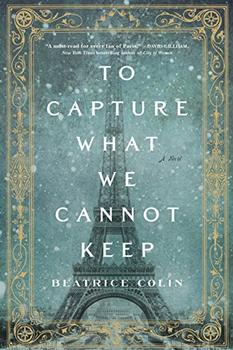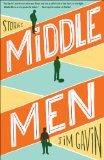Summary | Excerpt | Reading Guide | Reviews | Beyond the book | Read-Alikes | Genres & Themes | Author Bio

Kostova's masterful new novel travels from American cities to the coast of Normandy, from the late 19th century to the late 20th, from young love to last love. The Swan Thieves is a story of obsession, history's losses, and the power of art to preserve human hope.
Psychiatrist Andrew Marlowe, devoted to his profession and the painting hobby he loves, has a solitary but ordered life. When renowned painter Robert Oliver attacks a canvas in the National Gallery of Art and becomes his patient, Marlow finds that order destroyed. Desperate to understand the secret that torments the genius, he embarks on a journey that leads him into the lives of the women closest to Oliver and a tragedy at the heart of French Impressionism.
Kostova's masterful new novel travels from American cities to the coast of Normandy, from the late 19th century to the late 20th, from young love to last love. The Swan Thieves is a story of obsession, history's losses, and the power of art to preserve human hope.
Elizabeth Kostova's second novel will delight some readers and disappoint others... despite the odd handling of the characters' back-stories and a certain flatness to those characters, I came away feeling moved. Among the many pleasures found in The Swan Thieves are Kostova's exquisite descriptions of paintings and the window she gives the reader into the world of painting, including all of its grueling physical labors along with the exhilaration that results when inspiration and execution create great works of art. Her historical detail of the Impressionist period is beautifully done. Finally, she left me with much to ponder - rather in the way a painting can keep you looking and finding more the longer you look...continued
Full Review
(506 words)
This review is available to non-members for a limited time. For full access,
become a member today.
(Reviewed by Judy Krueger).
One of the key themes in The Swan Thieves is the challenge of male and female artists who form relationships and must navigate the storms of artistic temperament and genius. The theme could be looked at as a genre or perhaps a subgenre of novels about art/romance.
We present for your reading pleasure some favorites of the genre:
Historical Fiction:
Clara, by Janice Galloway
 The torturous love affair and marriage of two musical geniuses: Clara and Robert Schumann. Clara maintains her talent and drive despite her husband's fame and depression, but ...
The torturous love affair and marriage of two musical geniuses: Clara and Robert Schumann. Clara maintains her talent and drive despite her husband's fame and depression, but ...
This "beyond the book" feature is available to non-members for a limited time. Join today for full access.

If you liked The Swan Thieves, try these:

To Capture What We Cannot Keep
by Beatrice Colin
Published 2017
Set against the construction of the Eiffel Tower, this novel charts the relationship between a young Scottish widow and a French engineer who, despite constraints of class and wealth, fall in love.

by Jim Gavin
Published 2014
Middle Men brings to life a series of unforgettable characters learning what it means to love and work and be in the world as a man
A truly good book teaches me better than to read it...
Click Here to find out who said this, as well as discovering other famous literary quotes!